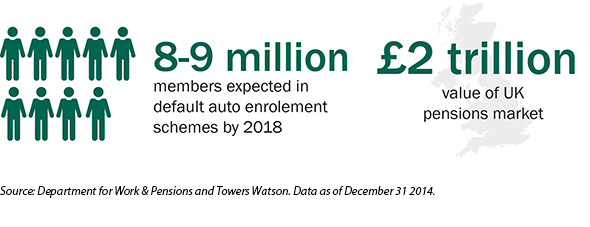It's up to DC decision-makers to maximise pot values
From the blog: How difficult and complex has the world of delivering an effective pension scheme become in the UK?
With the advent of increased regulation, complexity in investment strategies and falling interest rates, it is sometimes easy to overlook that the fundamental challenge for trustees is to deliver a financially sound retirement solution to members.
With the advent of increased regulation, complexity in investment strategies and falling interest rates, it is sometimes easy to overlook that the fundamental challenge for trustees is to deliver a financially sound retirement solution to members
The growing governance requirements and the impact of recent charge caps has made this objective all the more challenging.
Put simply, the challenge in defined contribution is how to maximise the 'years of final salary' that can be put in the members pot for retirement, without taking undue risk.
Amid all the changes in regulation, greater requirements on scheme decision-makers, and ever-moving markets, this is what a scheme ultimately provides to the member and is, in many ways, the key metric of the success of a scheme.
Prior to the changes in April, schemes could robustly pursue active management with the aim of trying to enhance returns, as the benefits of the hoped-for alpha outweighed the costs. The risk now is that cost becomes the main driver.
The DC default world is growing…
If one focuses on the objective of boosting this pot for retiring members then – alongside cost-effectiveness, operational robustness and effective communication – the responsible management of a scheme should still include seeking out default fund structures that provide incremental returns over a purely passive approach, which snowball over time into a larger final pot.
This can have a significant impact to a member, a broad-minded approach where the objective of boosting the final pension pot remains paramount, even within the complexity of provision.
The industry is responding to the challenge of change and, in particular, to the requirement for cost-effective management of each individual member's assets.
DC scheme members now have flexibility in how they use their final pension pot, but the focus should also be on how to maximise this, which is by fully embracing the responsibilities of scheme decision-makers and the vehicles the market is beginning to provide.
Michael Kelly is global head of multi-asset at PineBridge Investments
Most Viewed
- What does Labour have in store for the pensions industry?
- LGPS latest: GLIL backers invest £475m for UK infrastructure push
- Dashboard costs rose by 23% in 2023, figures show
- Border to Coast launches UK strategy in major private markets push
- How the pensions industry can better support people with mental health problems


